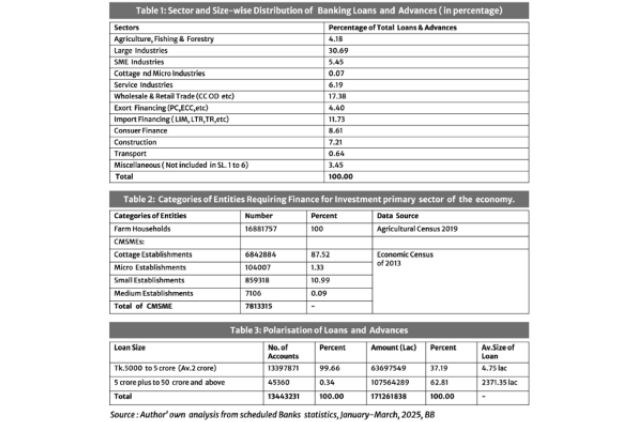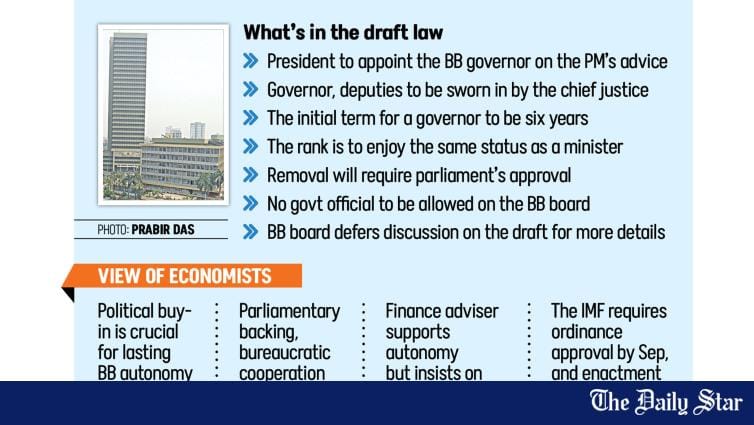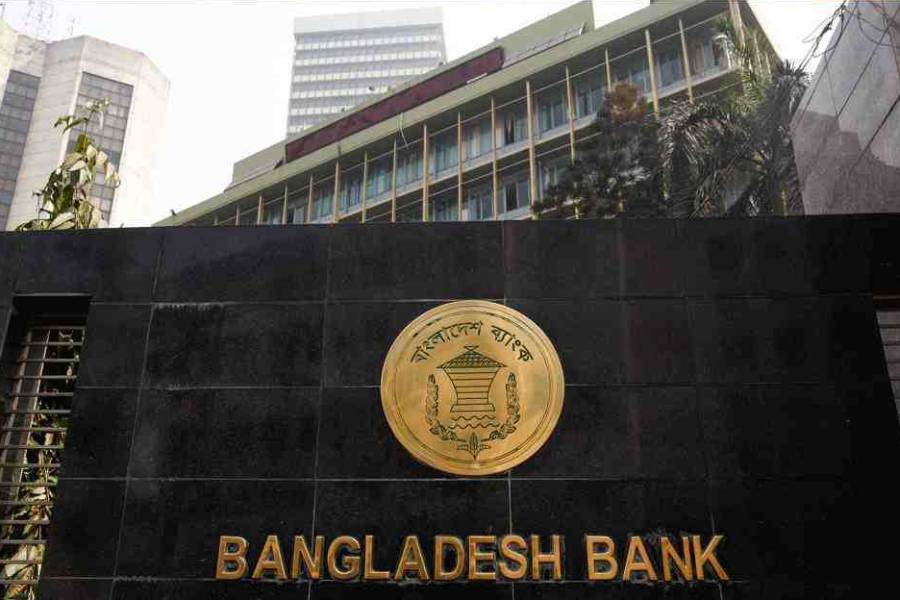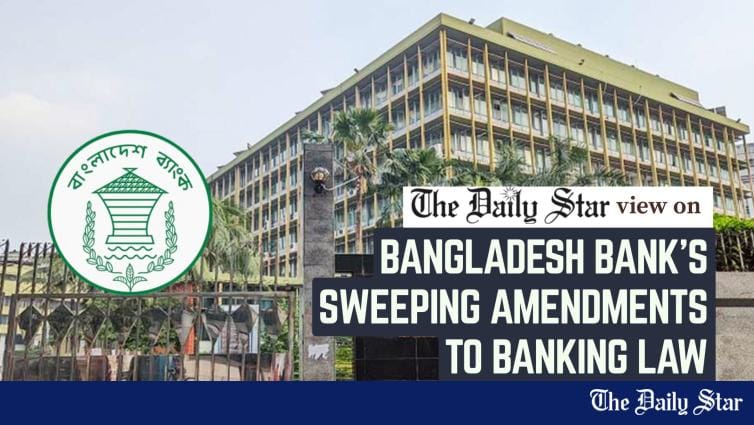Saif
Senior Member
- Joined
- Jan 24, 2024
- Messages
- 17,273
- Likes
- 8,334
- Nation

- Residence

- Axis Group

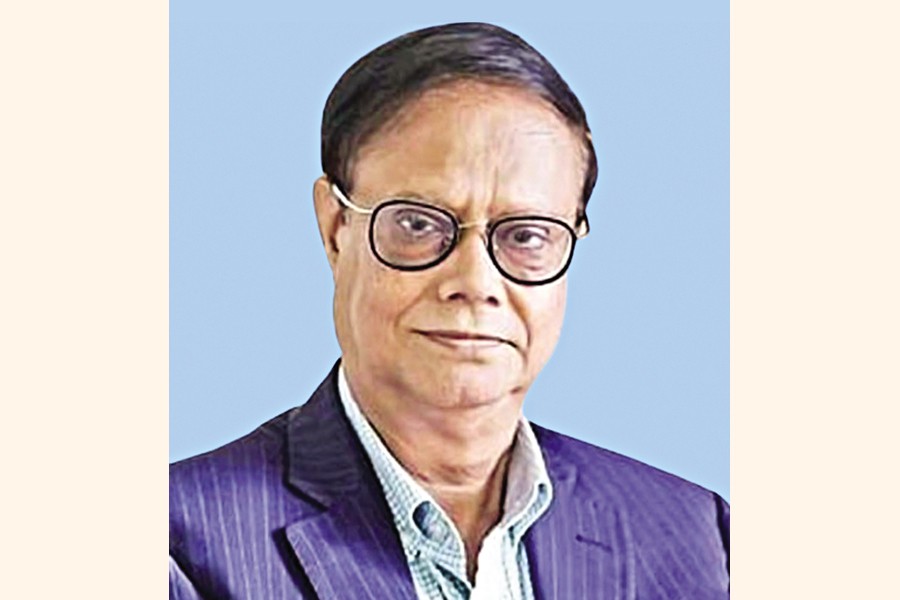
Bangladesh’s banking sector pulled back from the brink: BB governor
Bangladesh’s banking sector has managed to pull back from the brink over the past year, Bangladesh Bank Governor Ahsan H Mansur said on Sunday, crediting a series of measures taken since he assumed office. Speaking at a seminar titled 'Interim Government’s 365 Days' organised by Centre
Bangladesh’s banking sector pulled back from the brink: BB governor
UNB
Published :
Aug 10, 2025 12:51
Updated :
Aug 10, 2025 12:51

Bangladesh’s banking sector has managed to pull back from the brink over the past year, Bangladesh Bank Governor Ahsan H Mansur said on Sunday, crediting a series of measures taken since he assumed office.
Speaking at a seminar titled 'Interim Government’s 365 Days' organised by Centre for Policy Dialogue (CPD), the governor said the sector was “right at the edge of the cliff” when the interim government took office in August last year.
“Our two main challenges were to stabilise the macroeconomy and reform the financial sector. Reforms cannot be done in a year, but we have started them in every area,” Mansur said.
Upon taking charge, he held meetings with international financial institutions to maintain lines of credit.
“We assured them that we would repay every penny we owed, and we did. Our situation did not turn like Sri Lanka or Pakistan,” he said.
According to him, the biggest support in debt repayment came from remittance inflows alongside export earnings over the past year.
On inflation, the governor said controlling it was a major challenge.
Since August 14 last year, Bangladesh Bank has not sold a single dollar from reserves, instead buying dollars at Tk 122 despite pressures to adjust the rate.
Inflation has since fallen below 10%, and Mansur expects it to drop below 5% in the future.
While the balance of payments is now in surplus, the economy is still lagging in attracting investments, he noted.
“Before elections, big investors will not come, but we have already prepared the ground to encourage investment after the polls,” he added.
On why no banking commission was formed, Mansur said it would have delayed urgent decisions, taking six to nine months to produce a report. Instead, three separate taskforces have been formed to reform the banking sector, central bank operations, and recover laundered money.
Recovering funds siphoned abroad is proving the most challenging, he said, as it requires coordination with 8–10 ministries.
Major legal reforms are also underway, including extensive amendments to the Bank Companies Act, fundamental changes to the Money Laundering Act — adding asset recovery provisions — and broad revisions to the Bangladesh Bank Order to enhance the central bank’s accountability and autonomy.
Amendments will also be made to the Deposit Insurance Act and the Money Loan Court Act to resolve long-pending loan default cases.
The central bank also plans to amend the Bangladesh Bank Resolution Ordinance to allow it to acquire any bank facing liquidity crises due to irregularities. “No more leniency. If a bank cannot operate properly, Bangladesh Bank will take it over,” Mansur warned.
He added that a single body will be created for “360-degree monitoring” of all banks to tackle irregularities in a coordinated manner.
The governor further stressed initiatives to make Bangladesh a cashless economy, including the promotion of QR codes, wider credit card usage, expansion of nano-loans, banking education for school students, Tk 200 student bank accounts, housing reforms, revenue department restructuring, and lowering smartphone prices to expand digital banking coverage.
UNB
Published :
Aug 10, 2025 12:51
Updated :
Aug 10, 2025 12:51
Bangladesh’s banking sector has managed to pull back from the brink over the past year, Bangladesh Bank Governor Ahsan H Mansur said on Sunday, crediting a series of measures taken since he assumed office.
Speaking at a seminar titled 'Interim Government’s 365 Days' organised by Centre for Policy Dialogue (CPD), the governor said the sector was “right at the edge of the cliff” when the interim government took office in August last year.
“Our two main challenges were to stabilise the macroeconomy and reform the financial sector. Reforms cannot be done in a year, but we have started them in every area,” Mansur said.
Upon taking charge, he held meetings with international financial institutions to maintain lines of credit.
“We assured them that we would repay every penny we owed, and we did. Our situation did not turn like Sri Lanka or Pakistan,” he said.
According to him, the biggest support in debt repayment came from remittance inflows alongside export earnings over the past year.
On inflation, the governor said controlling it was a major challenge.
Since August 14 last year, Bangladesh Bank has not sold a single dollar from reserves, instead buying dollars at Tk 122 despite pressures to adjust the rate.
Inflation has since fallen below 10%, and Mansur expects it to drop below 5% in the future.
While the balance of payments is now in surplus, the economy is still lagging in attracting investments, he noted.
“Before elections, big investors will not come, but we have already prepared the ground to encourage investment after the polls,” he added.
On why no banking commission was formed, Mansur said it would have delayed urgent decisions, taking six to nine months to produce a report. Instead, three separate taskforces have been formed to reform the banking sector, central bank operations, and recover laundered money.
Recovering funds siphoned abroad is proving the most challenging, he said, as it requires coordination with 8–10 ministries.
Major legal reforms are also underway, including extensive amendments to the Bank Companies Act, fundamental changes to the Money Laundering Act — adding asset recovery provisions — and broad revisions to the Bangladesh Bank Order to enhance the central bank’s accountability and autonomy.
Amendments will also be made to the Deposit Insurance Act and the Money Loan Court Act to resolve long-pending loan default cases.
The central bank also plans to amend the Bangladesh Bank Resolution Ordinance to allow it to acquire any bank facing liquidity crises due to irregularities. “No more leniency. If a bank cannot operate properly, Bangladesh Bank will take it over,” Mansur warned.
He added that a single body will be created for “360-degree monitoring” of all banks to tackle irregularities in a coordinated manner.
The governor further stressed initiatives to make Bangladesh a cashless economy, including the promotion of QR codes, wider credit card usage, expansion of nano-loans, banking education for school students, Tk 200 student bank accounts, housing reforms, revenue department restructuring, and lowering smartphone prices to expand digital banking coverage.


































